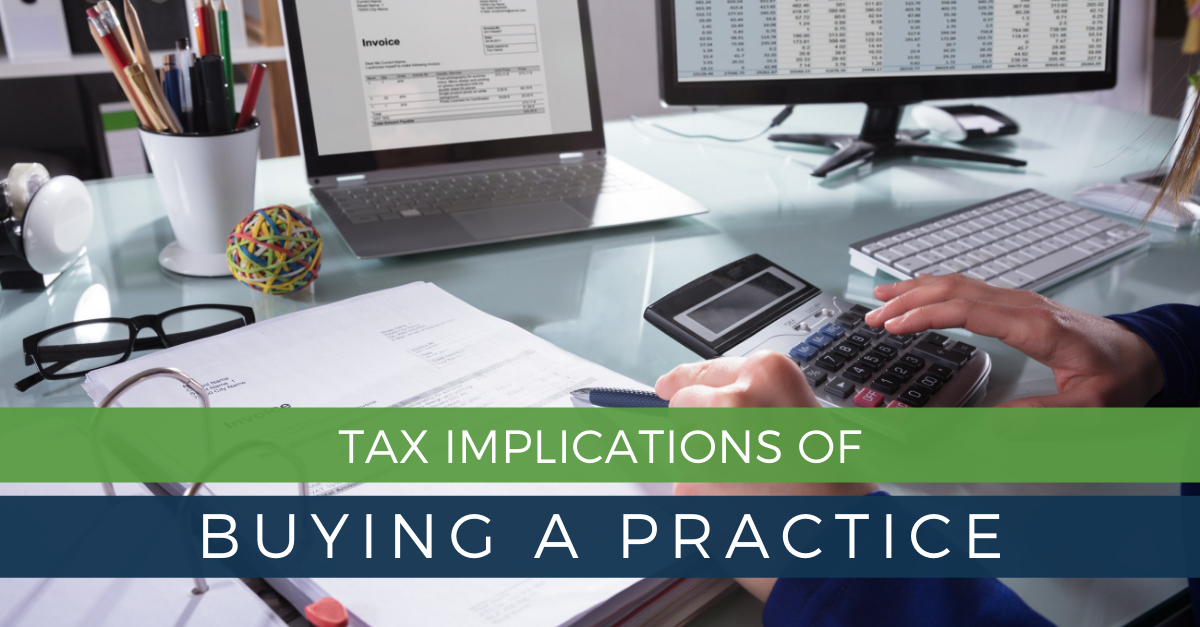Tax Implications of Buying a Practice

An acquisition can significantly change your practice in many ways, not just in size. It can bring on new team members, expand your practice into a new region, or even into a new client market. Smart advisors anticipate these changes and plan accordingly. But one change many advisors miss and are often surprised by is how the acquisition can impact their taxes. To help advisors prepare for the tax implications of buying a practice, we spoke to Alan Salomon, CPA with Advisor Legacy.
According to Salomon, most practice sales are structured in a way so that the assets of the business are sold, minus any liabilities. As he explains, “This asset-based approach, as it relates to financial service businesses, generally only considers goodwill, as often times there are little to no fixed assets on the books of the business, and any liabilities tend to stay with the seller.” Salomon also cautions that in the financial advisory industry, most goodwill is personal goodwill. Meaning “goodwill that is attached to the individual business owner simply because of his/her good name, reputation, or personal relationship, as opposed to enterprise goodwill which attaches to the business and not the business owner because of familiarity with the name of the company, location, or systems that it has in place.” Salomon stresses that because most goodwill in the advisory industry is personal, it’s important to have anon-compete and a claw-back(s) in place.
If the buyer is making payments to the seller over time, Salomon says they must include interest. The interest paid is tax deductible to the buyer and “should be considered as taxable income to the seller at ordinary income tax rates.” Other elements of the acquisition are also deductible. These include:
- Fixed Assets: These are deductible just like any other fixed asset held by the business and are deducted based on their asset class. Usually, they are deductible for a period of 5-7 years.
- Goodwill/Customer List and Non-Compete: Both are amortized over a 15-year time frame.
- Consulting Agreement: If you are retaining the seller for any period of time, payments made to the seller under the consulting agreement are deductible in the year the payments are made.
- Other Interest: Other loan interest, such as from an acquisition loan, is deductible in the year it is incurred/paid.
As with all tax matters, its best to speak to your CPA so you can get professional tax advice based on your specific situation. Knowing the tax implications ahead of time and planning accordingly can also help you make an informed decision about what practices to purchase and how to time your acquisitions.
